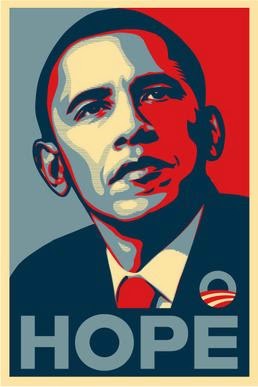| Grande Anse Beach, Grenada |
Tag: Jamaica
Road Trip to Paradise Neglected: Parottee, Jamaica
We both needed it. Life gets stressful. So off to Parottee, St. Elizabeth we went.
Evidence of recent rains was a welcome sight as we headed west along the south coast. Clarendon which was parched just a few weeks ago showed signs of new life in the now green bush and the barely there trickle in the river. We made our way through Porus and climbed the hill into cool, evergreen Mandeville. A quick stop for ice at the top of Spur Tree ensured that we would be in business when we arrived at our final destination. Driving through Jamaica is one of the pleasures we still enjoy.
Three and a half hours after starting out (yes..we drive slowly) we were there: Parottee. Parottee is a small fishing village just beyond Black River. It has a West End, Negril vibe: chill, organic and very laid back. It’s laid out along a straight road running along the coast. The beach is not white sand though…it brownish, silty stuff that renders the sea itself kind of cloudy, and it does take some getting used to.
Road Trip Jamaica details: Overnight Stop at Idler’s Rest
H had made arrangements for us to overnight at one of several guest houses that exist in Parotee: Idler’s Rest. Reviews on Trip Advisor warned us, but we go where angels fear to tread! “Strength…no weakness!”
Well…first warning: the parking lot was empty save for a lone pickup with a man and someone who was obviously his apprentice. H called it: “Lord…that looks like the plumber!” I remarked that we already have plenty of practice with buckets, so let’s rock and roll. As it turned out, it was the plumber. And yes, we had water issues. But I digress…
The hotel was obviously planned and decorated by an artist…the little touches and accent pieces are evidence enough. But it has an abandoned feel to it. I swear that we were the only ones there.
| Basic room…very basic… |
When a Jamaica Road Trip Involves a Boat Ride!
H had arranged a little adventure for us. YASSS! A fishing boat, arranged through the hotel, pulled right up on the shore. A well dressed, pleasant Huggie helped us into the pretty little fishing boat, equipped with a 60HP engine (a single outboard engine…yikes!) and off we went. We were headed for the famous Floyd’s Pelican Bar…a rugged construction in the middle of the ocean where one can go to drink, eat and soak up a very special vibe.
| Huggie and his vessel. See the colour of the sand? |
Along the way….
We moved along parallel to the coast before turning right to get to our final destination which was a mile offshore.
| Captain Huggie at the controls! |
| Abandoned hotel in Parotee being claimed by the sea. |
| Pelicans? |
| Niceness galore |
Approaching final destination 20 minutes later…
| Totally unexpected! |
| Almost there… |
Final destination: Pelican Bar!
Lobster stew…cabbage was plentiful in St. Elizabeth and so they used it! He confirmed that he was going to add coconut milk to the final product…I had to ask…
| The Jacks were running, so that’s what was served….along with the freshest bammies ever. |
 |
| Idlers at rest |
We met…
| Beautiful face of Parottee… |
| Young Serbian come to Jamaica as a fitness instructor. He carried his chicken & rice n peas to Pelican 🙂 |
| No question as to where we were… |
The rain came down and we all huddled under the thatched portions, warmed by the typical Jamaican libations on offer.
| H and Floyd. This is all Floyd’s vision. |
| After the rain… |
Jamaica Road Trip: Scenes from Parottee…
| Someone’s thinking green in Parottee…. |
| Signs of neglect and decay and dead dreams… |
| Wetlands in Parottee |
| Wetlands in Paraottee… |
Parottee could easily be another Treasure Beach…there’s enough to go around. Of course massive investments would be needed in order to move from neglect to prosperity. And for investments to flow, a master developmental plan is needed: think music festivals, community tourism, literary festivals, sporting events, regattas, and so on. Treasure Beach is a short drive away and there’s enough to see in the parish of St. Elizabeth to keep visitors engaged and interested: Black River tours, Lovers Leap, day excursions to Negril, immersion in the life of the locals on the fishing beach. The plan would have to include training, beautifying the community and ensuring security. All very doable. All urgently needed.
The poverty in Parottee is real and palpable. You can see the shifts in relative wealth as you transition from Black River (bustling town with shops, markets, etc.) to Parottee (struggling fishing village..small, mean residences, abandoned hotels, bush…) to Treasure Beach (quaint, rustic, organised artists haven)
We’ll be back… promise….
What does Independence Day Mean to You?
The Broken Windows Theory & Policing in Jamaica: “To protect, Serve and Reassure…those who matter”
The Visit: Yes We Can Clean Up Kingston (apparently!)
Independence: Nothing more than a warm and fuzzy feeling at best. Remembering Tisha.
I’m sad. In 1962 Jamaicans were hopeful as we claimed our independence from Britain. It is 2015. Here we are. It makes the news when an eternally malfunctioning elevator at the public hospital in Kington is fixed. Horror stories, almost unbelievable, about the absence of basic medical supplies in the public health system become a daily fixture on radio talk shows. Bombarded with one political scandal after another (think Trafigura, Cuban Light Bulb, Manat-Phillips-Phelps, Finsac, Tivoli incursion to name a few) our numbness renders us impassive to constitutional breeches that could have serious repercussions down the road. If you’ve ever been the position of having to find suitable hires, then I need not regale you with how the educational system has failed. We have had rehashed anti-crime programmes thrust upon us ad naseum, with nothing but rising crime, more sophisticated in its organisation. The generation before my own has failed, and I suspect that my own children will say that we have failed them too. We haven’t fought for better. We have tolerated mediocrity, and some of us have been complicit when it suited a personal agenda.
This morning I remembered Tisha*. Tisha was a HEART trainee with the organisation. She was quiet and diligent. She was well spoken and shy. One morning she brought some documents to my office for my signature. She greeted me with her quiet voice and pleasant smile. As I scanned the documents and signed, we began talking. I am a prober by nature. I stopped signing and sat back. She had caught my attention with her thoughtful, well constructed answers to my probing. It turned out that Tisha had 10 CSEC subjects, sciences included. Yet here she was, a filing clerk in a programme that demanded no more than 4 CSEC subjects.
“I wanted to go to 6th form to do A levels and then head on to University to do medicine. But my family couldn’t afford it. My father told me that it was time for me to get a job and do my part.”
I probed further.
“I wanted to do medicine” she explained with a sad smile.
“So what is your plan B then?” I insisted.
Tisha was stumped. The notion of a plan, much less a plan B had never occurred to her.
“Listen” I said…”Med school may be out of your reach. Let me be honest with you. But that does not mean that you have to put all professional aspirations on hold. If I told you that you could go to University, but that you couldn’t do medicine, what would you do?”
“Accounts” she offered.
“Now we can plan!” I said excitedly.
“But I have to have A levels” she said worriedly.
“No, no, no! To do A levels now would add years and cost to your journey. Here’s what you can do: get out of this HEART internship and get a real job. Then apply to UTECH. Then apply for a student’s loan.”
We had the start of a plan. Every week I’d check with Tisha re: the job hunt. In about 2 months she told me that she had a firm offer that would pay her much more than the HEART position. I guided her with respect to the timing of the resignation from HEART. I took her to the Students Load Bureau and guided her application to UTECH.
Tisha moved on. I heard that she was doing a degree in Business Admin at UTECH and I rejoiced. Tisha had been suffering a double whammy: lack of resources and lack of guidance.
I ran into Tisha about 4 years later at the public library. We embraced, and then she introduced me to her toddler daughter shyly. I cut straight to to chase: “So did you finish your degree?”
“No” she replied softly, head down. “I had one more year to do, but I had to stop.”
I encouraged her to enquire about the possibility of doing it part-time, and of the need to marshal all her resources into completing that degree.
I never kept in touch. I hope her story ended well.
Free education was never really free. As a nation we never defined how education would be paid for. The result has been a diminishing quality of product year after year after year.
Decades after so called independence, our safety nets and support structures for a marginalized population are not at all robust. Our young lack opportunities and guidance. Independence bestowed a warm and fuzzy feeling. Not a thing more.
What next then?
I suspect that we will have to an about face for better to come. The current trajectory, be it green or orange will continue the descent into poverty, inequity and hopelessness.
*name changed
My Fondest Christmas Memories: A letter to my Family
Justice, Truth be Ours Forever…What does Justice look like?
Poor Governance… What are our options?
I was frustrated with the present government. I watched our Prime Minister deliver the main address at the PNP annual conference. I listened carefully. “So this is as good as it gets with the PNP? What are our options?” I was desperate for an alternative. But when I looked across to “greener” pastures, that hope dimmed. I blogged then about our need for a credible alternative, and opined that in their present state, I did not think that the JLP was much of a choice. I begged the JLP. I pleaded with them.
I was challenged, on separate, unrelated occasions by two people that I think highly of, whose opinions I respect, to think carefully about what I was saying. Their common thesis was “how can a credible alternative reside in another creature of the same system?” (my words). Think about it. How different are the JLP and the PNP really? Was I looking for mere respite or was I in search of a systemic fix?
In May 2010, under a JLP government, turmoil in the community of Tivoli, itself a JLP garrison, resulted in 72 civilians being killed. Having initially resisted an extradition order for “community leader” Christopher Coke, then PM Golding eventually capitulated and ordered the security forces to enter Tivoli, where it was thought he was hiding, and extract Coke for hand over to the US authorities. Conflict arose when the security forces came smack dab against resistance from elements in Tivoli. The entire city remained on lock down for a few days. Property was destroyed. People died. The nation and the world were appalled at what happened.
 |
| The Don Reigns Supreme |
 |
| What were these barricades supposed to do? Who erected them? |
 |
| Security Forces Ordered In… to do what exactly? What was their mission? |
The Tivoli COE: Facing what’s in the Mirror
We are now into the second week of the Tivoli COE and I am disturbed.
 |
| Maiden Cay |
 |
| Hellshire |
From Day 1 of the enquiry, I have grappled with this observation:The COE is being conducted in two languages. For the most part, the people giving testimony are doing so in Patois, but the lawyers are questioning in English. The need for clarification has come up repeatedly. Conflict between the written statements of the witnesses and what they are actually saying in the enquiry come up over and over again. You see, the people speak only Patois. But their written statements are in English. Are the discrepancies evidence of lies or are they misalignments, “lost in translation” as it were ?
What does Justice Look Like?
Consider this: Garrisons and Dons are a construct of the Politician. It was a way of securing and mobilising large blocks of votes in order to secure power. Both the PNP and the JLP have associated garrisons and dons.
Over time, the Don has evolved beyond the politician as his power source. He amassed wealth through his own means and wielded influence outside of the Politician.The balance of power shifted. The Politician now had to kowtow to the Don in order to keep his voting blocks secure.
The same Politician who birthed the Don and the Garrison, is the same Politician who sent in the Security Forces in the face of pressure and embarrassment. When the people demonstrate loyalty to their new boss the Don, and people die, that same Politician convenes a Commission of Enquiry to do what? Elicit truth? Seek justice? Justice for whom? And what does that justice look like?
Don’t seek to differentiate between JLP and PNP. The scenario that played out in May 2010 and the COE in 2014 could well have happened in another garrison, with different administrations playing alternate roles.
The Solution cannot reside with either the PNP or the JLP
Toggling between the JLP and PNP has landed us here. Their antecedents are the same. Their mechanisms are the same. Only the individuals differ.
The move from slavery to being a freed people under Britain, to becoming an independent nation took many years. It took challenging to laws of the day and agitating for change to move us along that trajectory. It took demonstrations. It took representation at the highest levels. Perhaps we just got too unwieldy and expensive for Britain to keep us on as a colony. Once we decided what we wanted however, we had to go after it.
Perhaps Jamaicans will have to challenge the status quo in similar fashion… how else will the systemic issues that allow successive governments to build and secure enclaves and plunder and hide and lie and reward loyalty change?
So What does justice look like?
The Jamaican middle class, the “Articulate Minority” stretched and growled in unprecedented manner the other day. Offended at the casual dismissal by a senior government official in seeking to differentiate between veranda talkers and tweeters here in Jamaica, and the voting, political base that keeps governments in power, middle class Jamaica lifted their voices. Stepping out of their comfort zone, they made placards and stood in New Kingston to voice their indignation at being dismissed out of hand and at the latest display of poor governance.
 |
| The Articulate Minority Dec 1 2014 |
Perhaps we ought to stretch ourselves just a little more out of comfort zones and consider matters of justice that impact lives and society beyond our own.
It is past the time to allow the Politician to hoodwink us. Do you really expect anything to come out of this COE given the roots of the issue and the authors of said issues?
It is time to press for real change…not just change of government, the same old systems remaining intact. Justice will come from systemic change that makes it difficult for corruption and inequity to prevail.
The people of Tivoli need justice. The increasingly pressured middle class need justice. Members of the security forces operating under orders need justice. We who can, must articulate a vision of Justice. We must press for it. I am aware that significant change doesn’t often happen overnight. But still we must press. We must guard those institutions and systems that offer even a measure of protection from marauding politicians. Even while acknowledging that toggling between orange and green is not The Solution, I cannot distance myself from one of the basic mechanisms left to us to effect change. Perhaps incremental change towards new systems, enacted by the party that wants our votes the most will prevent total destruction while we crawl towards a better day.
Clyde Williams, PNP member and lawyer, this morning posted this as his status on Facebook:
I have turned to Norman Manley’s speeches and writings to keep faith with the historical mission of the PNP, and to remind myself of some foundation ideals of this young democracy. In his address at the public session of Conference, 15 November 1964, Nettleford (1971, Selected Speeches) reports Norman Manley to have said, in talking about abuse of power, “Already men say when they hear of wrong: ‘what can I do about it?’ But for every time you allow wrong to pass unrebuked, you are breaking down the will to resist, and step by step you will find yourself left without courage to fight for what you believe in. Therefore, it is a duty to resist where resistance is right.”
The walls around our properties can only go so high. Our air-conditioned SUVs will continue to take us to select destinations until blockades and raging fires keep us prisoners in our own homes. To feel safe because you are in that section of society where a police will not drape up your son, or lock up your man for days, or where you can see your private health care provider in comfort and secure your child in private school is a to dwell in a fool’s paradise. After all, “justice denied anywhere diminishes justice everywhere.” Martin Luther King Jr.
Johnnie Walker and The Disappointers
A Love Affair with Portland…Not me!
For as long as I’ve known him, H has loved the parish of Portland in Jamaica. My dad too… as a young army officer back in the 60’s when he first came to Jamaica from Grenada, he said he used to go to Portland at any chance he got. Portland reminded him of Grenada, he said. Having lived in Grenada for a bit during my childhood, I understand where he is coming from. Portland is green, rain-foresty, hilly, humid and has beautiful beaches. My attitude towards Portland though has always been “I can take it or leave it.” Meh. And I had a particularly bad experience when we were just married and had spent a weekend at Goblin Hill. I got the worst ever case of gastroenteritis that put me out of commission, and painfully so for a whole week! I suspect there was an unconscious coupling of Portland with gastro in my mind that didn’t create any yearning within for that parish.
Ambassabeth, Winnifred and Me
So when H announced that he wants to retire there, I pushed back with: “Enjoy! Yuh nah carry me out deh fi drop dead!”. He knew better than to push back. Think Eminem’s line: “…when a tornado meets a volcano…” But he’s also very smart. I have to believe that he hatched a plan to make me fall in love with Portland. It started with him organising a weekend at Ambasabeth cabins in the John Crow Mountains. He KNOWS that I live for drive outs…anywhere…and that it was somewhere new, in the hills, he had to know that I’d jump at the chance to go. What I didn’t bargain for was a weekend that did more than provide an opportunity to live like a pioneer (sort of) and walk some historic trails.
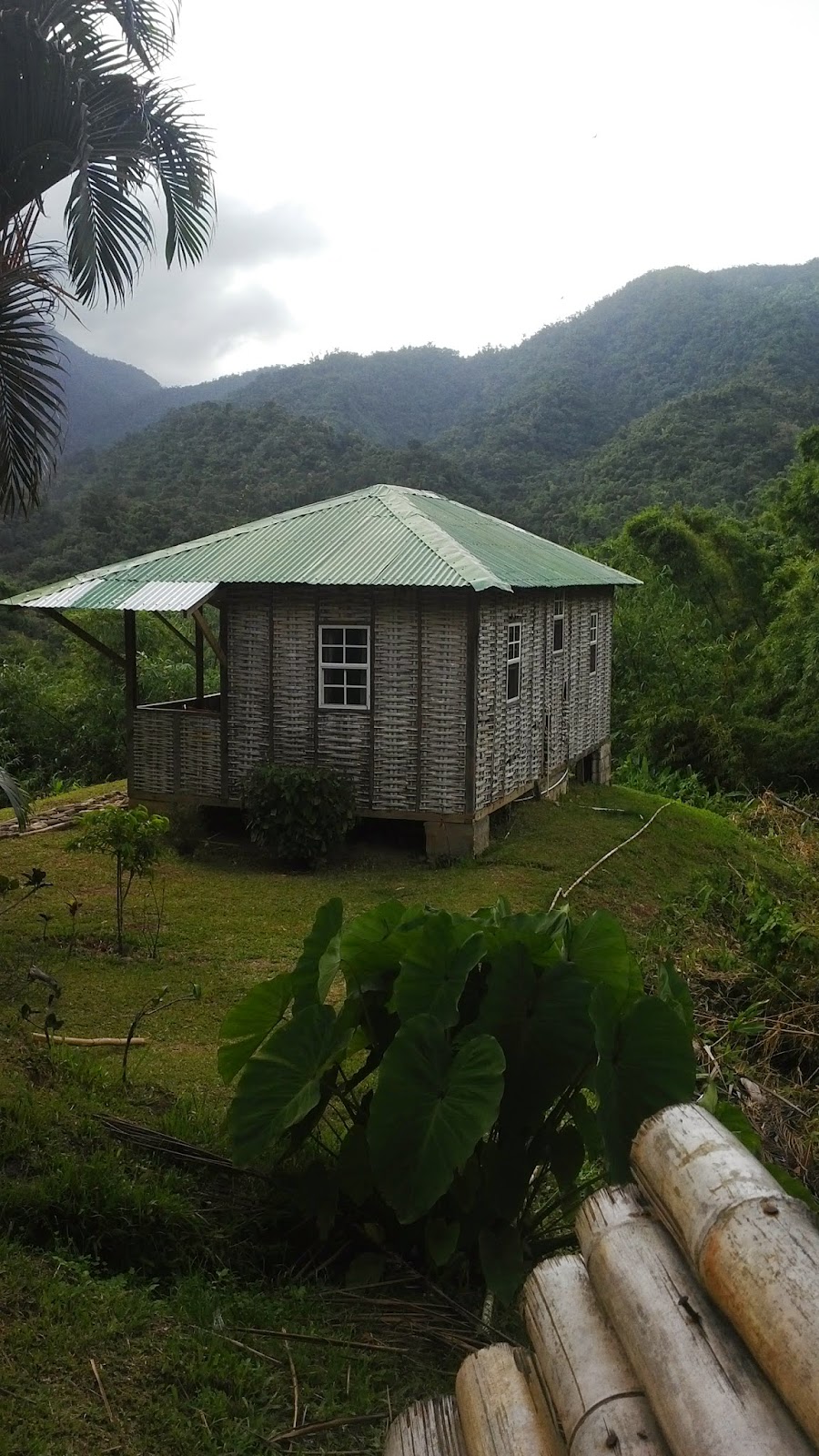 |
| A cabin at Ambassabeth |
In retrospect I can see him smiling smugly and pumping his internal fist when I waxed warm for MONTHS after that weekend about how struck I was by the community that we became part of for those few days. Part Next of his plan included repeat visits to Frenchman’s Cove beach. I am an unrepentant beach baby. My soul re-centers and I feel all the cares of the world slip away, like a shirt slipping off my shoulders with each lap of the waves, each gentle gust of sea breeze… or is that the rum? Whatever! I live for the beach. And Frenchman’s Cove, with its beautiful garden setting, its pristine, blue river with white sandy bottom (not dark and pebbly like other rivers) undulating lazily into the small bay that is Frenchman’s Cove is how I imagine the Garden of Eden.
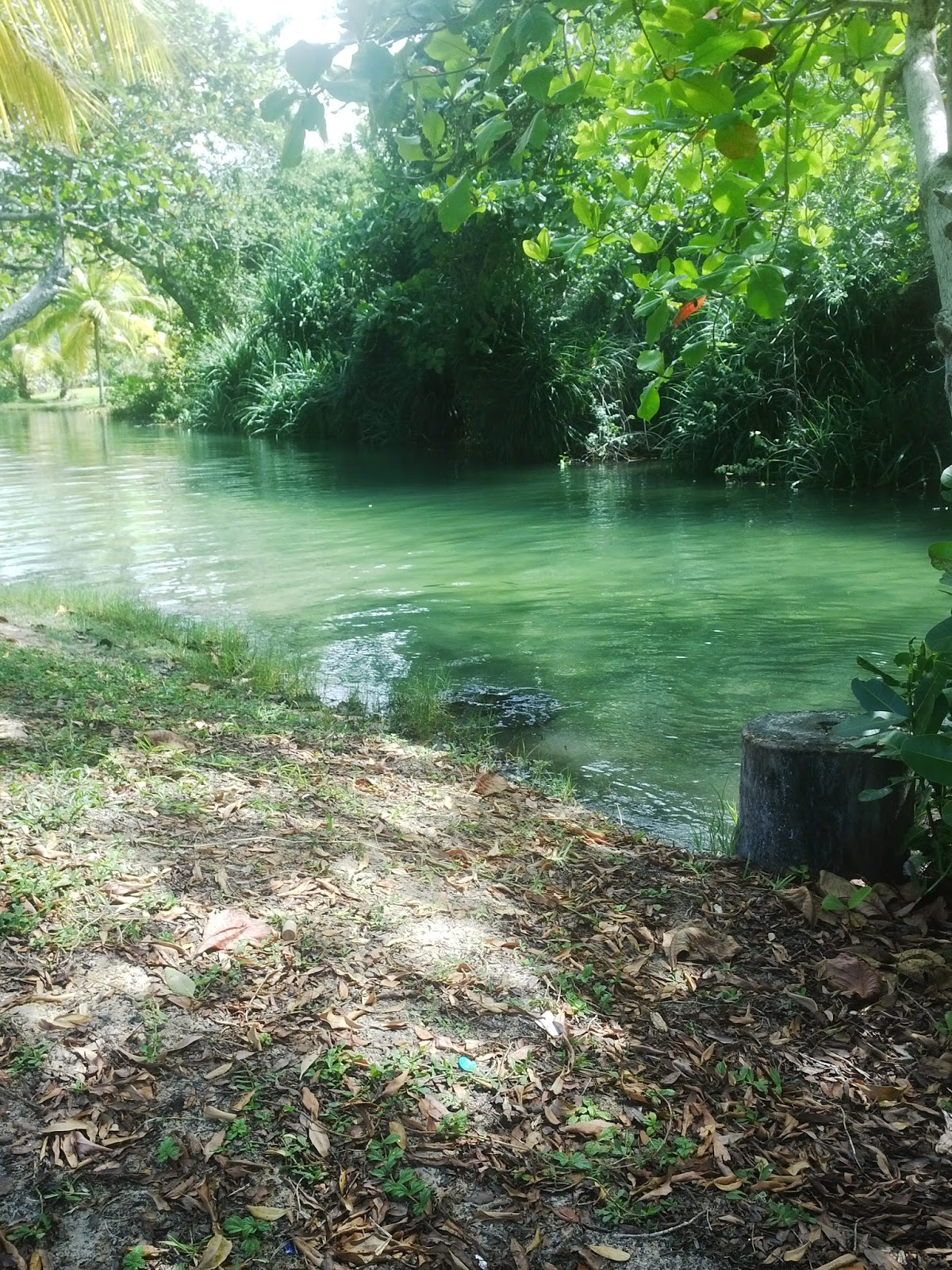 |
| The river at Frenchman’s Cove |
The last visit there was with family and friends and we reluctantly dragged ourselves back to Kingston after a perfect day,but not before I snapped this sunset.
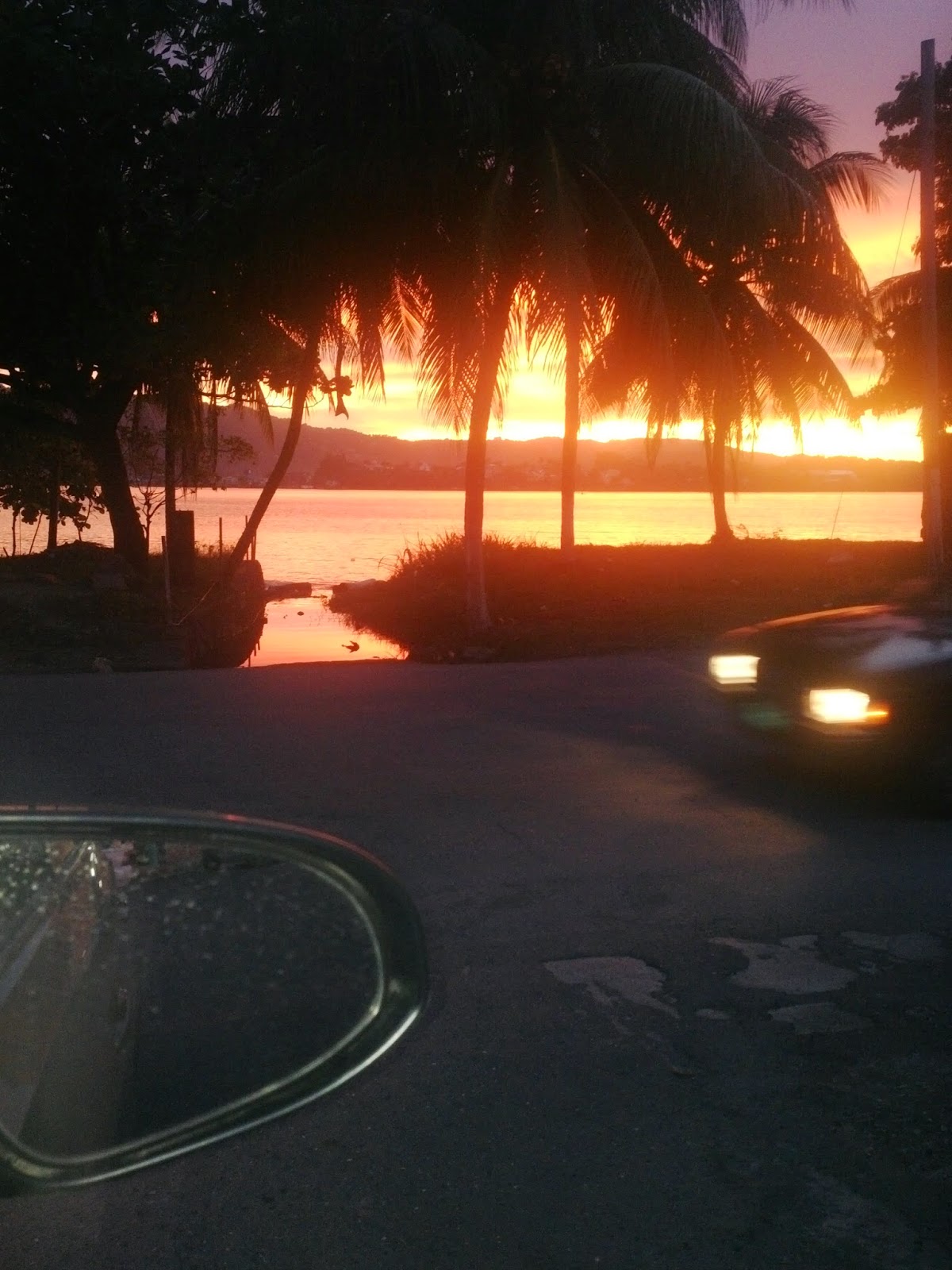 |
| Portand Sunset |
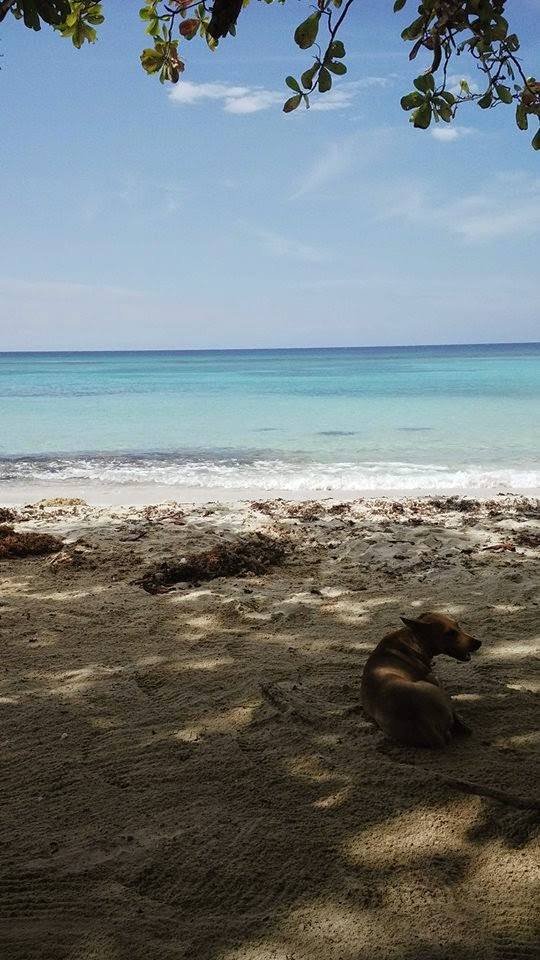 |
| Paradise aka Winnifred Beach |
But this was not said with a hint of arrogance. It was more a grateful acknowledgement, a happiness that his message had been heard and had connected with another soul. H wanted to buy his music and Johnnie found a copy of a CD and the transaction was done.
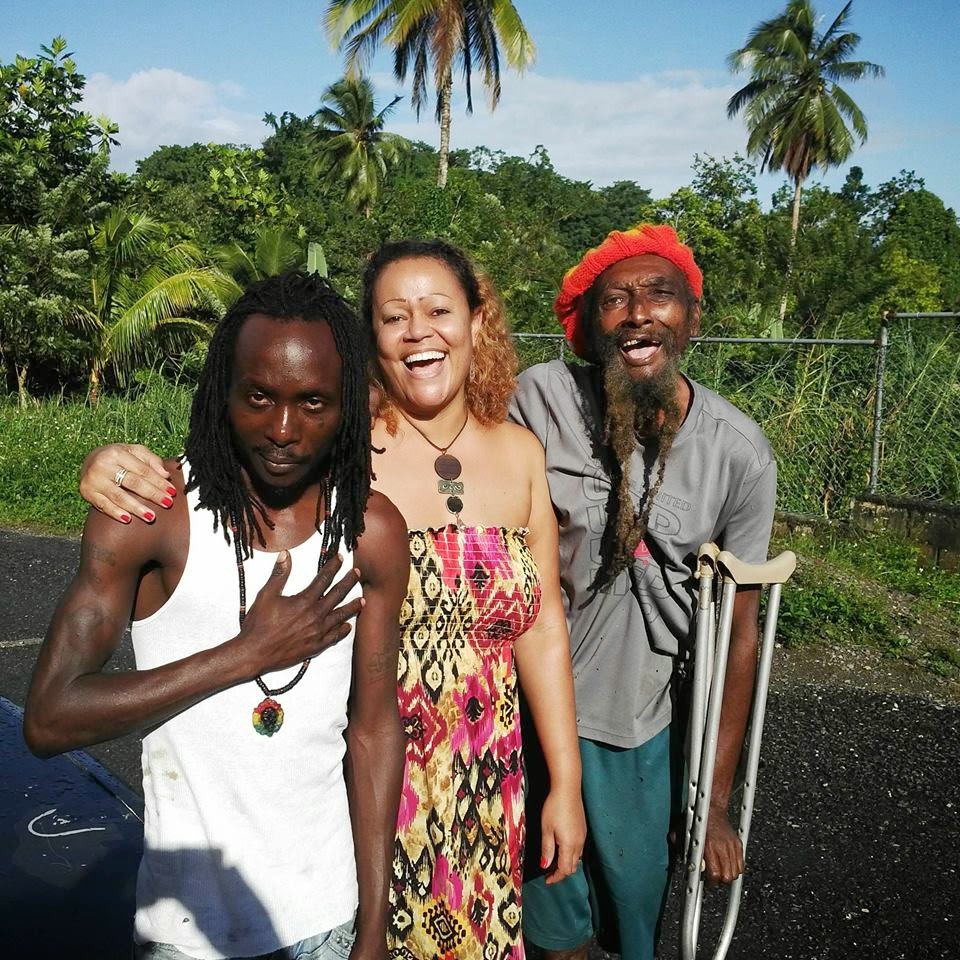 |
| From L-R: Cultural, Me and Johnnie Walker |
Simply Black and White… is it really?
This video by a white looking former beauty contestant Jamaican woman (Rosina Casserly) caused a bit of stir recently. In the video, she spoke about crime, the Chick V epidemic, and aspects of Jamaica other than balmy days sipping Appleton while waves lap around our feet… That she did this in a forum open to the world, and that she did it jokingly caused offence to many.
Anthony Bourdain’s “Part’s Unknown” CNN feature focusing on Jamaica (first aired on CNN November 16) also caused some reaction. In true Bourdain style, his story sought to capture the essence of the destination by delving into more than food and drink. As he always does, Bourdain tried to present the viewer with more than one angle, seeking to create a context for a more rounded understanding. A Jamaica tourist board feature it was not. Some people loved it while other declared embarrassment.
There’s a very strong sentiment that we as Jamaican’s ought not to “air dirty linen in public”. We once had a US Ambassador stationed here who dared to level an observation, ok, a criticism then, that as a country we tended to laud announcements rather than accomplishments. What an ant’s nest he stirred up with that statement! Not surprisingly to me, the discussion about the ambassador’s statement had more to do with who made the statement and where the statement was made, with almost zero thought given to the actual veracity of the statement. In Jamaica, form trumps principle every single time. We are extremely hung up on appearances and so called protocols without spending half of that attention and energy on the actual issue. People: we are too destitute and too deeply mired in the mess created over the years by our leaders to waste time on form. I insist.
But let’s come back to the video mentioned at the top of this post shall we. Kei Miller, brilliant Jamaican writer (his ability to articulate thought always leaves me satisfied and smiling…check out his blog) posted a comment critical of the video which eared him the ire of some other on-line commentators and the ire of the video star herself. Kei’s criticsm of the video was immediately slotted into the category of “he’s critical because the girl is a white girl and he’s black.” In his usual clear, thoughtful, introspective manner, Kei provided context for what ensued. I read and reread his blog post on the matter. Kei boldy goes where many tiptoe around and pretend as if it really doesn’t exist. But lemme ask you this: had that identical monologue done by Casserly been done by Ity and Fancy Cat, would it have been assessed in the same way? Would it have evoked the same reactions? Divides based on skin colour exist in Jamaica. We make judgments in this country based on skin colour, Yes, yes, yes…we proudly declare in our national motto: “Out of many, one people”. Right.
THE LONG LINE IN THE LADIES ROOM AT SOVEREIGN PALACE CINEPLEX
At intermission, I rushed with my young charge to the ladies room. Apparently, every other female in the house was on the same mission. The line was long. I took my place at the back of the line and prayed to God that it would move quickly. Two white looking girls, about 14 years of age, sauntered in chatting merrily to themselves. They swung their long, straight hair up into ponytails as they walked in and I watched in utter amazement as they breezed past us in the long line and simply took their place at the head of the line. Now the original head of said line was a woman, black skin, about 40 years of age. By this time, I am totally focused on what is unfolding before me. I ignored my young charge as I gave full attention to this scene. Black Woman looked annoyed, rolled her eyes and shifted her weight to her other foot as she folded her arms tightly across her chest. No one said anything, not even Black Woman. In a split second I decided that I was giving her exactly 20 seconds to take action, and if she failed to do so, I was going to step in. …19, 20, time up! I commanded my charge to stay put, and I took 3 strides to the top of the line and leaned in towards the girls. In a loud, clear, voice, calm though, I declared to them: “This is a line. This is where it starts, look at where it ends, You join the line down there.” They looked around in confusion, the confusion changed to obvious embarrassment, and they said sorry and moved to the back of the line. I went back to my own place in the line, not daring to look at Black Woman lest she see the disappointment I felt. In her. I had questions… Why didn’t she stand up for herself? Why did those white looking girls not see the line? I really don’t think they were malicious… they were simply behaving as they always did in their context of relative privilege.
“DRIVER: WE WANT A SEARCH”
Back in the early ’90’s, for a while, I used to take public transport between Kingston and Mandeville. I was engaged in on-farm research near Spur Tree and the project didn’t as yet have an assigned vehicle. It was not uncommon for the mini and coaster buses that I used to take to be stopped by police at random at various points along the route. All passengers had to disembark so the police could search for weapons and ganja. 9 out of 10 times that we were stopped for this search, the police would say to me: “Browning: you can stay inna di bus. Is aright. Si dung.” The special treatment afforded me started from the bus park, where the loader man or driver would signal to me: “Browning, come si dung inna di front.”
“HIM IS A NICE BROWN MAN. HIM CAN BE DI FOREMAN”
I knew someone who was summoned to jury duty years ago. She told me that she watched on in amazement at how the foreman was selected. See the selection criteria there… (sub-heading above). And no one objected. Including the person I knew. She wasn’t interested in the position and saw no point in introducing contention.
“WHITE WOMAN CAN’T MANAGE BLACK WOMAN HAIR”
The last time I combed my daughter’s hair was when she was in grade 4. She has a huge and gorgeous head of hair. Washing and combing it demanded prayer and fasting and push ups and pull ups…for the two of us. On this particular occasion, as her tresses got the better of me, I sighed and heaved and sucked my teeth. My normally quiet, reserved 9 year old angel said quietly, but clearly: “White woman can’t manage black woman hair.” I was stunned into silence. I was hurt that my baby saw a difference between us. I was puzzled. We both struggled through what would be our last hair episode (that’s why God invented hairdressers) and a few days later, after I figured I had processed it sufficiently, we spoke. I told her that shades of blackness was an artificial construct devised to divide the African slave population. That we as black people bought into it as we failed to recognise the glory and beauty of our black selves and instead looked at whiteness as an aspirational ideal. Mi tell har fi stop it.
 |
| Me and Rachie |
 |
| Her Glorious Mane! |
If you live in this country, then you have at least ten more stories that you can place right alongside only the 3 stories that I have chosen to share. I haven’t spoken bout how I was called coolie girl or white girl at my primary school. I haven’t shared how I was trying to make a point in a group discussion during high school and was laughed out of the room when I started with: “We as black people…” My parents, especially my mother, had a very strong sense of who they were, and passed that on to all six of us.
 |
| My Darling Antecedents |
I remember being puzzled when an old white man who was also attending the rose conference I was attending in Detroit politely asked me: “What are you?” My answer that I was Jamaican added to his confusion.
“But you aren’t white, are you? Are you black?”
“Yes I am. I come from the Caribbean where there was a whole lot of raping of black women by white men, and intermarriage between Indians, Chinese, Blacks and Whites”. Thus ended that convo.
We like to sing “Emancipate yourself from mental slavery” and we are taught to recite: “Out of Many One People”. I don’t think we get it. We still draw lines and make judgments based on colour (and the colour and class relationship can be thrown into the mix too) in Jamaica.
I have never lived anywhere other than the Caribbean (Jamaica, Trinidad & Tobago and Grenada). This is merely my experience, in the skin that I was born with. Other persons, born in a different skin, have other experiences that though different from mine, illuminate the very real colour divide in Jamaica. H insists that as a nation, as a people, we still haven’t recovered from slavery. He may be right.

